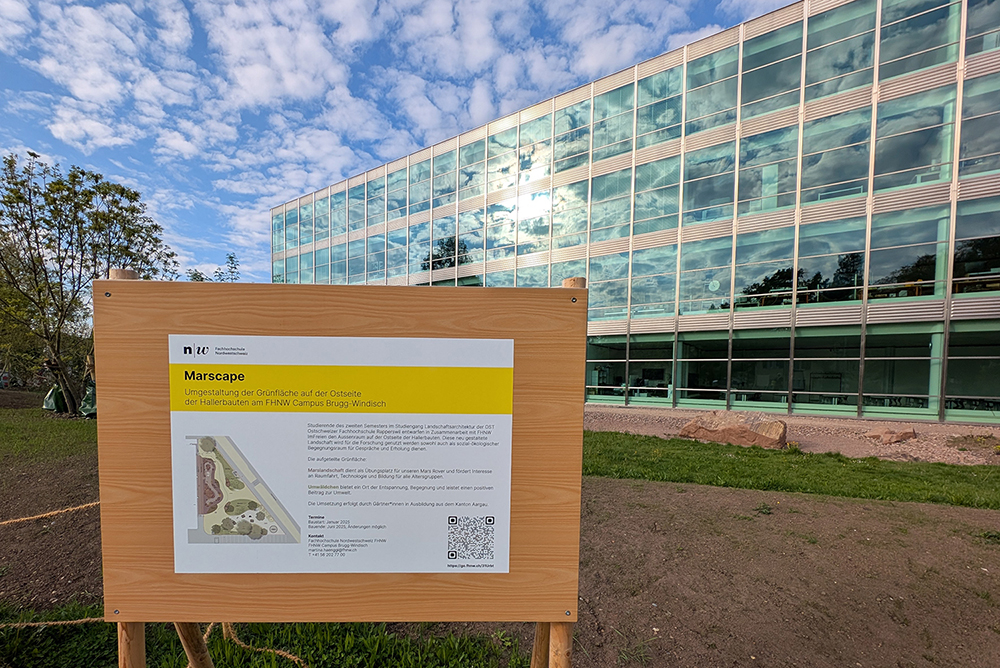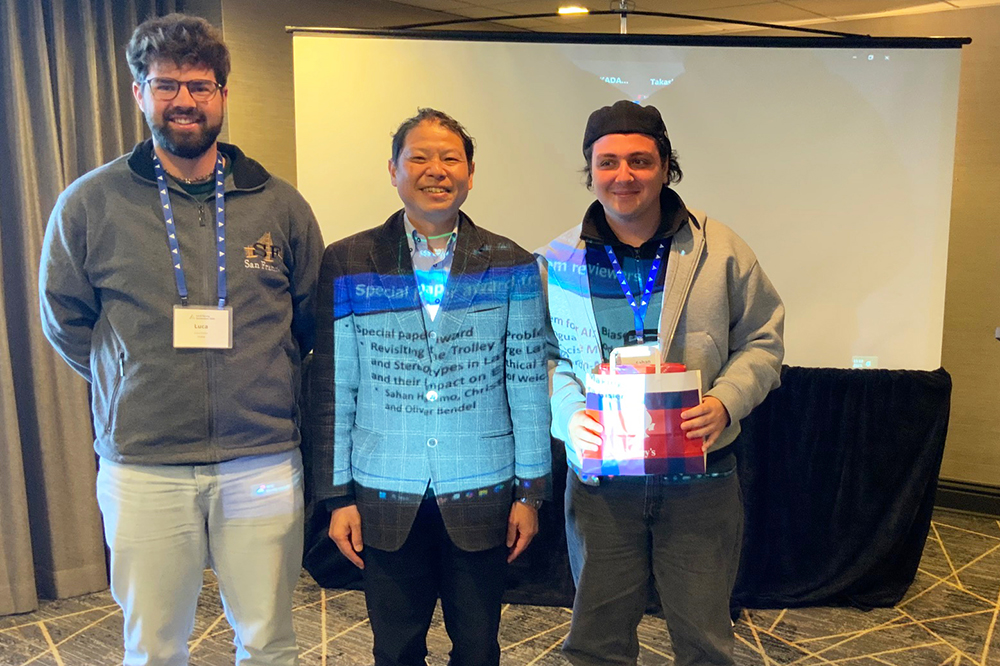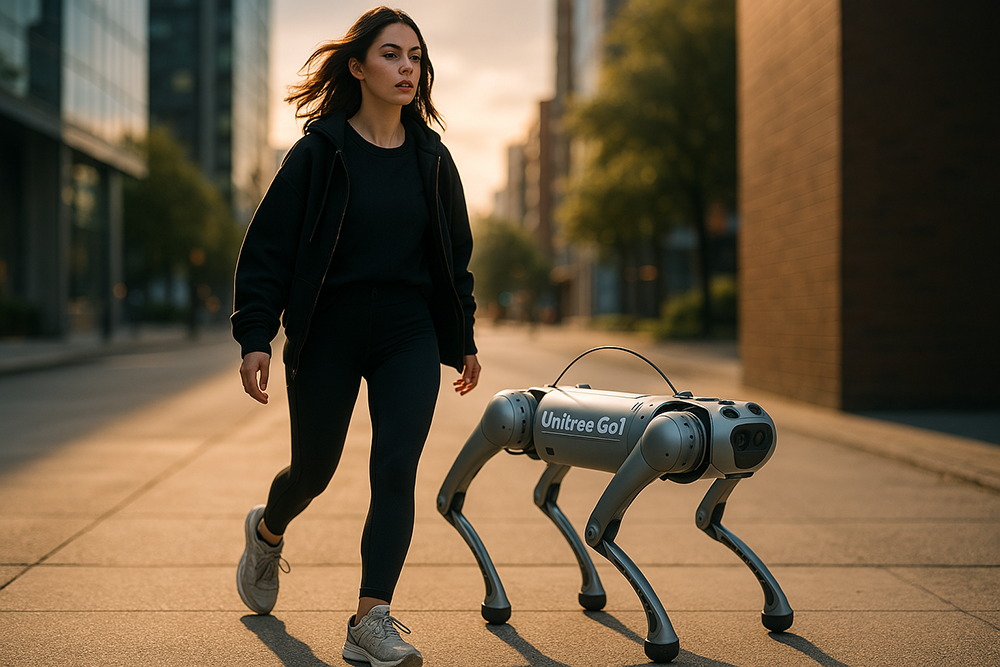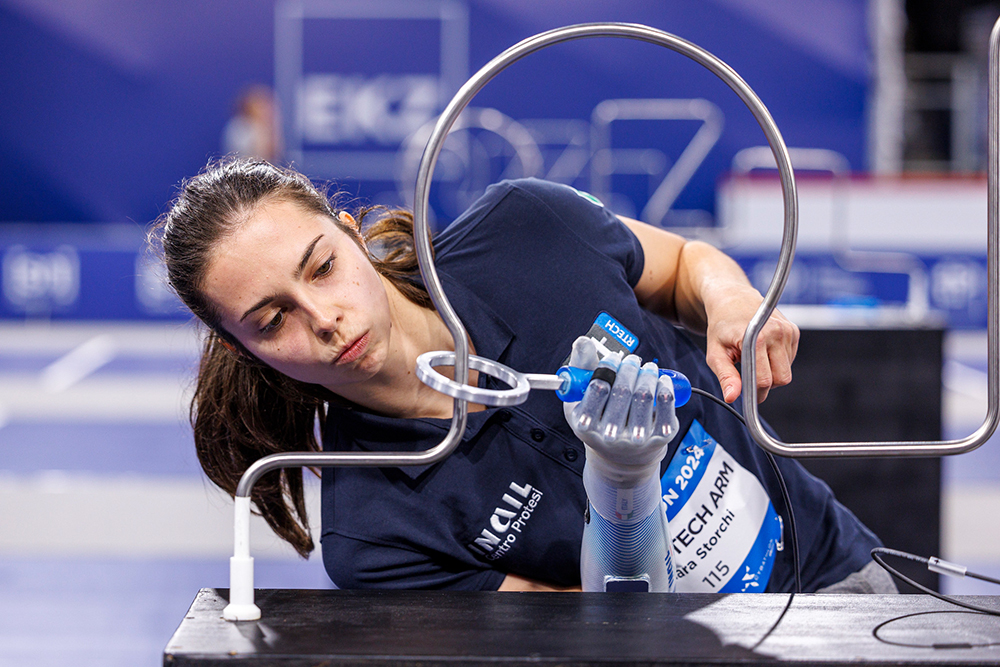Students from the Eastern Switzerland University of Applied Sciences (Campus Rapperswil) have created a Martian landscape in front of the Hallerbau on the Brugg-Windisch campus in collaboration with the FHNW. This will serve as a training ground for the FHNW Mars rover and promote “interest in space travel and technology” (information sign on the construction site, own translation). According to the website, the FHNW rover team consists of “an interdisciplinary group of students from the School of Engineering and Environment and the School of Computer Science”. The so-called “Umwäldchen” with new plantings offers a place for relaxation and encounters and makes a “positive contribution to the environment” (information sign on the construction site). According to its website, the FHNW is “active in the development of observation instruments, components and manufacturing processes for the aerospace sector”. In addition to the aforementioned universities, the FHNW School of Business is also active in this field. In 2021, SPACE THEA was developed, a voice assistant for Mars flights, which was presented at the AAAI Spring Symposia at Stanford University in 2022 and attracted the attention of NASA. In 2025, the focus will be on social robots for Mars flights with a view to ICSR 2025.
ICSR 2025 Extends Deadline for Submission
The ICSR is one of the leading conferences for social robotics worldwide. The 17th edition will take place from 10 to 12 September 2025 in Naples, Italy. The deadline for the submission of complete entries has been extended again. Papers should consist of 11 pages of body text plus references as appropriate. The most important conferences dates are: Full Paper Submission: April 30th, 2025; Full Paper Notification: June 6th, 2025; Camera-ready: June 30th, 2025; Paper Presentation Days at ICSR’25: September 11th and 12th, 2025. All dates are also listed on the website. “The conference theme, ‘Emotivation at the Core: Empowering Social Robots to Inspire and Connect,’ highlights the essential role of ‘Emotivation’ in social robotics. Emotivation captures the synergy between emotion and motivation, where emotions trigger and sustain motivation during interactions. In social robotics, this concept is key to building trust, fostering empathy, and supporting decision-making by enabling robots to respond sensitively to human emotions, inspiring engagement and action.” (Website ICSR) Participants will meet for two days at the Parthenope University of Naples and for the third day at the Città della Scienza conference center. All buildings and rooms are also listed on the website.
Bao in Olten
From April 15 to 17, 2025, the elective module “Social Robots” once again took place at the FHNW School of Business – as it has so often since 2021. The participants were information systems students from various locations. And once again, a GPT specialized in the topic was available, namely Social Robotics Girl. Prof. Dr. Oliver Bendel repeatedly had her explain the facts and then made additions. She also asked questions to the audience and provided a few laughs with her competent and nerdy manner. The robots at the demo included Unitree Go2 (called Bao), Pepper, Alpha Mini, Booboo, Furby, Cozmo, and Aibi. With the exception of Pepper, they all come from the Social Robots Lab, which is privately funded by Prof. Dr. Oliver Bendel. Unitree Go2 was used to explore not only the seminar room on the Olten campus, but also the area in front of it. The robotic four-legged friend ran forwards and backwards, jumped, stood on its hind legs, drew a heart in the air, and impressed with various dance interludes. When designing their own social robots – the students complete this task in groups – they again worked with the five-dimensions model by Oliver Bendel and image generators.
Image Synthesis from an Ethical Perspective
The article “Image Synthesis from an Ethical Perspective” by Prof. Dr. Oliver Bendel was published as an electronic version in the journal AI & SOCIETY on September 27, 2023. It addresses the ethical implications of image generators, i.e., a specific form of generative AI. It can now also be found in the current print edition from February 2025 (Volume 40, Issue 2). From the abstract: “Generative AI has gained a lot of attention in society, business, and science. This trend has increased since 2018, and the big breakthrough came in 2022. In particular, AI-based text and image generators are now widely used. This raises a variety of ethical issues. The present paper first gives an introduction to generative AI and then to applied ethics in this context. Three specific image generators are presented: DALL-E 2, Stable Diffusion, and Midjourney. The author goes into technical details and basic principles, and compares their similarities and differences. This is followed by an ethical discussion. The paper addresses not only risks, but opportunities for generative AI. A summary with an outlook rounds off the article.” A lot has happened with image generators since 2023. The new one from OpenAI now also allows photorealistic images, and it has fewer problems with average-looking people – DALL-E 2 and 3 favored beauty over mediocrity and ugliness. The article can be downloaded from link.springer.com/article/10.1007/s00146-023-01780-4 (Image: DALL-E 3).
Revisiting the Trolley Problem for AI
The paper “Revisiting the Trolley Problem for AI: Biases and Stereotypes in Large Language Models and their Impact on Ethical Decision-Making” by Şahan Hatemo, Christof Weickhardt, Luca Gisler, and Oliver Bendel received the Special Paper Award from the reviewers of the AAAI 2025 Spring Symposium “Human-Compatible AI for Well-being: Harnessing Potential of GenAI for AI-Powered Science”. The three bachelor students from the FHNW School of Computer Science gave their presentation on site in San Francisco as part of the AAAI 2025 Spring Symposia. Prof. Dr. Bendel from the FHNW School of Business had given them feedback on the project and placed it in the context of machine ethics. He has been involved in the well-known and popular conference, which usually takes place at Stanford University, since 2016. This time, he was keeping his fingers crossed from Italy. The proceedings of the AAAI 2025 Spring Symposia will be published shortly.
This Robot Could Spy on You
As reported by the CyberInsider platform on March 24, 2025, security experts have discovered a pre-installed, undocumented remote access tunnel in the Unitree Go1 robot dogs that enables remote control and network access. The Unitree Go1 can be found in numerous companies and universities. During their tests, the researchers were able to list all connected devices and their IP addresses and access these devices. They were also able to use the robotic quadruped’s cameras for live monitoring. The article states: “Perhaps most concerning is the implication of deliberate design. The tunnel is not merely an over-looked debug utility; it appears fully integrated into the boot process and enabled by default.” (CyberInsider, 24 March 2025) Users should immediately isolate their devices from critical internal networks, change SSH credentials, and disable the tunnel service. More information is available on the platform.
The Next Social Robots Module
The elective module “Soziale Roboter” (“Social Robots”) by Prof. Dr. Oliver Bendel will be held again from April 15 to 17, 2025 at the FHNW in Olten. It is primarily aimed at prospective information systems specialists, but prospective business economists can also take part. Dr. Amol Deshmukh has been invited as a guest speaker. He previously worked for the University of Glasgow and now conducts research at ETH Zurich. In his lecture, he will present the findings from his paper “Leveraging Social Robots to Promote Hand Hygiene: A Cross-Cultural and Socio-Economic Study of Children in Diverse School Settings”. Unitree Go2, Alpha Mini, Cozmo, Vector, Aibi, Furby and Booboo from Oliver Bendel’s private Social Robots Lab will also be on site. Social Robotics Girl, a so-called GPT who specializes in this topic, will be available as a tutor throughout the event. Basic works are “Soziale Roboter” (2021) and “300 Keywords Soziale Robotik” (2021). At the end of the elective module, students design social robots – also with the help of generative AI – that they find useful, meaningful, or simply attractive. The elective modules have been offered since 2021 and are very popular.
About Inclusive Robotics
The Gabler Wirtschaftslexikon is the largest economics encyclopedia in the German-speaking world. In March 2025, Oliver Bendel published an article on inclusive robotics in this reference work. The first part reads as follows: “Inclusive robotics designs, develops, controls, manufactures, and operates robotic solutions for individuals with disabilities or impairments. The goal is to enable them to fully participate in social life and to engage in education, culture, and sports. This can involve the replacement or enhancement of a body part, as well as the use of a robot that provides assistance (an assistive robot or companion robot) or is worn on or with the body (a wearable robot). Robotic quadrupeds and bipedal general-purpose robots are becoming increasingly relevant. In the future, these will function as universal robots – true generalists. Inclusive Robotics addresses not only physical aspects but also psychological ones. It is closely related to inclusive AI.” The full article is available at: wirtschaftslexikon.gabler.de/definition/inclusive-robotics-172663 (Photo; ETH Zurich, Cybathlon/Alessandro Della Bella).
Start of the VISUAL Project
The kick-off meeting for the VISUAL project took place on March 20, 2025. It was initiated by Prof. Dr. Oliver Bendel from the FHNW School of Business. “VISUAL” stands for “Virtual Inclusive Safaris for Unique Adventures and Learning”. There are webcams all over the world that show wild animals. Sighted people can use them to go on a photo safari from the comfort of their sofa. Blind and visually impaired people are at a disadvantage. As part of Inclusive AI – an approach and a movement that also includes apps such as Be My Eyes with the Be My AI function – a solution is to be found for them. The aim of the project is to develop a prototype by August 2025 that enables blind and visually impaired people to have webcam images or videos of wild animals described to them. The system analyzes and evaluates them with the help of a multimodal LLM. It presents the results in spoken language via an integrated text-to-speech engine. As a by-product, poaching, bush and forest fires and other events can be detected. The project is likely to be one of the first to combine inclusive AI with new approaches to animal-computer interaction (ACI). Doris Jovic, who is completing her degree in BIT, has been recruited to work on the project.
Apollo Comes to Berlin-Marienfelde
According to a press release from March 18, 2025, Mercedes-Benz is bringing one of “the most advanced commercial humanoid robots in the world” (Mercedes-Benz press release, own translation) to Berlin-Marienfelde. This site has established itself as a global competence center for production digitization since the launch of the Mercedes-Benz Digital Factory Campus (MBDFC) in 2022. The manufacturer, Apptronik, is based in Austin and was founded in 2016 as a spin-off from the Human Centered Robotics Lab at the University of Texas. According to its website, Apollo is “the first commercial humanoid robot that was designed for friendly interaction, mass manufacturability, high payloads and safety” (Apptronik website). The robot stands approximately 172 cm tall and weighs about 72 kg. Unlike comparable bipedal robots, it does not have a display in the facial area, but only two eyes. Its head resembles that of social robots such as ARI or P-Care. Apollo is a modular system that can be used either in a stationary or mobile setup. Regarding its implementation, Mercedes-Benz states in the press release: “The Apollo robots have collected data in a production environment in order to train for specific use cases” (Mercedes-Benz press release, own translation). Employees with hands-on production experience at Mercedes-Benz “transferred their knowledge to Apollo using teleoperation processes and augmented reality” (Mercedes-Benz press release, own translation). “Now, Mercedes-Benz is taking the next crucial development step at the MBDFC in Berlin: The Apollo robots are learning to operate autonomously – a technological milestone on the path to a flexible, intelligent assistance system for production” (Mercedes-Benz press release, own translation).









